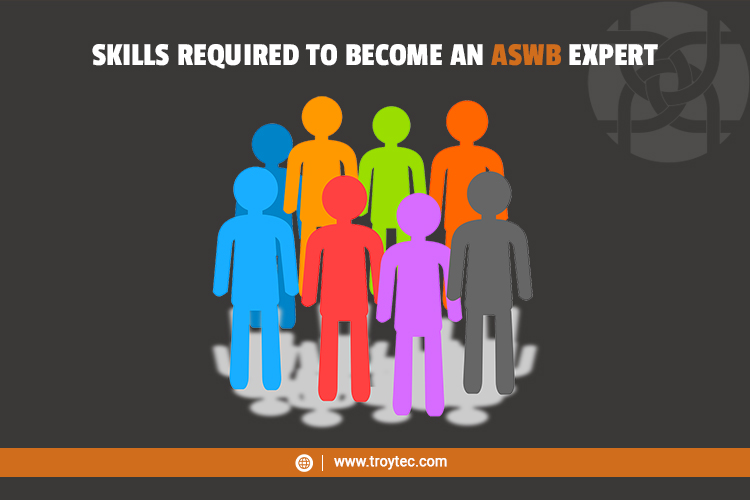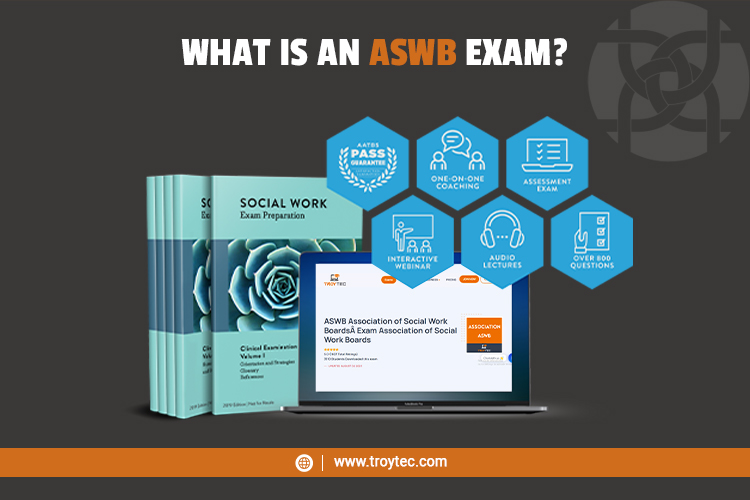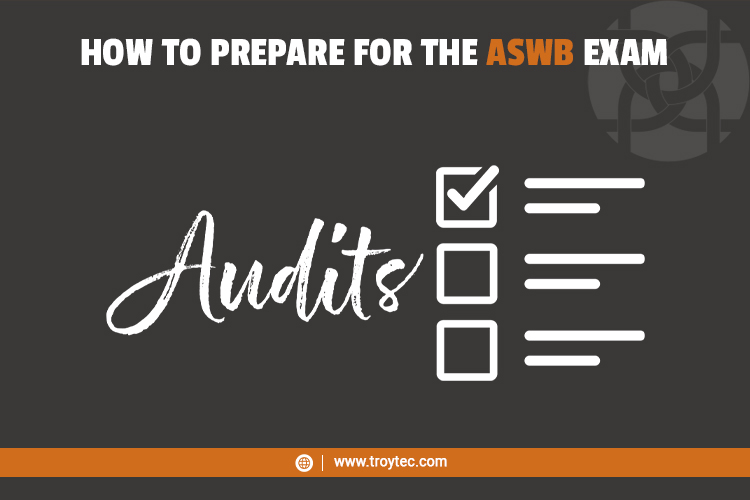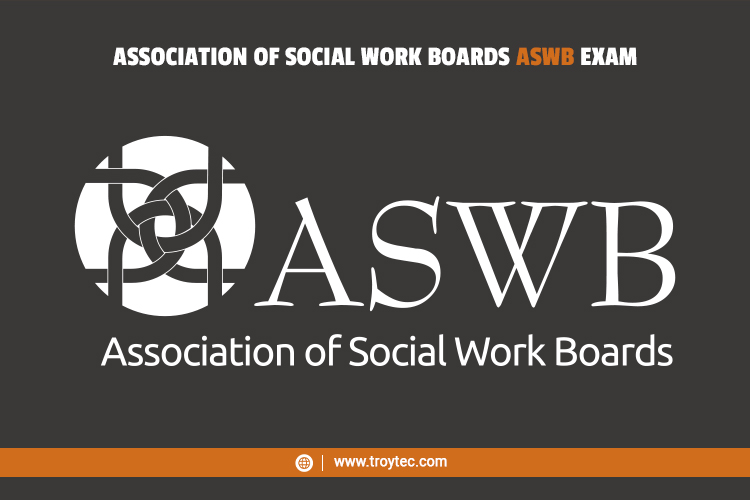Passing the Association of Social Work Boards or ASWB exam maze can feel like beginning a perilous voyage. This vital stage stands among you and your goal of becoming a certified social worker; mastering its complexities is critical.
We will examine the ASWB exam’s main aspects in this dynamic examination. From its foundation and substance to deciphering the evaluation criteria, we leave no stone untouched in demystifying the process. The ASWB exam will help you get your desired job in no time.
We understand that passing the ASWB exam requires more than just rote memory. It is about understanding human behavior’s difficulties, societal procedures, and moral deliberations. As a result, we research efficient knowledge strategies, development approaches, and stress-relief methods modified to the exam’s severe nature.
Our goal line is not purely to get you prepared for the Association of Social Work Boards Exam but to perceive you emerge as an experienced and responsible social worker. So, let us begin this ground-breaking journey, see through the secret of the ASWB exam, and permit you to embrace the boundless options that an operative social work profession may provide. Keep exploring and reading this comprehensive blog if you want to become a certified associate social worker.
What is ASWB Certification?
The term ASWB stands for the Association of Social Work Boards, which governs the exams required for becoming an authorized worker in the field. Five examinations correspond to different levels of education: Associate, master’s, Bachelor’s, senior generalist, and medical. To practice social work at any stage, every state, the United States District of Columbia, some Canadian provinces, and the Virgin Islanders require passing licensing exams. To qualify for a licensing exam, you must have received social work training and curriculum from a college or university’s authorized social work degree course. Working in any field of social work necessitates ASWB exam certification.
ASWB exam Certification is a certificate awarded by the Association of Social Work Boards or ASWB to licensed social workers who have successfully satisfied the organization’s requirements and qualifications. The ASWB is a nonprofit organization that ensures the competency and professionalism of social workers in the US and Canada. The certification method entails a thorough assessment of the social worker’s knowledge, abilities, and ethical behavior, intending to maintain the best practices in the industry.
Social workers must often complete educational requirements and amass a specified number of monitored work hours to acquire ASWB Certification. They must also pass the ASWB exam, which evaluates their knowledge of many aspects of social work practice. Passing the ASWB exam can boost your profile.
The ASWB exam covers various themes, such as ethics, social behavior, variety, and clinical assessment.
ASWB Certification is required for social workers because it demonstrates their dedication to maintaining ethical standards and offering competent and efficient services to people of all ages. This accreditation not only upsurges social workers’ standing but also promises they are fully equipped to report the varied and dissimilar needs of the individuals they serve.
Furthermore, ASWB exam Certification is accepted in multiple states and regions, allowing social service providers to practice in various places without extra exams or evaluations. Because of this flexibility, ASWB Certification is a prodigious asset for social service employees wishing to develop their professions or journey to new areas.
Who is an Association of Social Work Boards Expert?
An Association of Social Work Boards or ASWB expert is well-versed in the rules, practices, and laws that regulate social work licensure and regulation. ASWB is a charitable organization that ensures the expertise and integrity of social workers across different jurisdictions. In this situation, an expert is a superstar who understands the ASWB’s assignment, guidelines, and procedures.
These professionals regularly have a substantial understanding of professional social work, permission, and controlling matters. They understand the several types of social work permits, the processes for acquiring and keeping these licenses, and the moral requirements that social workers must follow. Their professional familiarity may include the following:
- The development of licensure ASWB exams.
- The regular assessment of the candidates’ credentials.
- .The deep understanding of jurisdiction-specific legislature.
ASWB specialists could include former elected officials, staff members, or advisors who utilized their skills closely with the organization. He has to pass the ASWB exam first. They could also be scholars, practitioners, or legal experts who have committed their careers to comprehending and advocating for the concepts that underlie successful social work regulation. Their perspectives are vital in ensuring that licensure procedures are fair, demanding, and responsive to the changing requirements of the social work industry and the customers they serve.
An ASWB specialist is a competent authority who understands the complexities of social work oversight, licensure criteria, and ethical principles established by ASWB. Their knowledge contributes to the credibility of social work activity and the well-being of professionals and those they support.
Skills Required to Become an ASWB Expert

The following are critical abilities for social workers to have:
Listening actively
A significant portion of an ASWB social worker’s responsibilities is carefully paying attention to their clients. This skill allows you to pinpoint the client’s specific concerns to assist them properly. Active listening contributes to the development of trust, the establishment of a positive connection, and the expression of respect. It also lets you grasp management, psychology, and other industrial directions.
Lobbying
ASWB social workers promote equitable treatment and empower communities and clients through advocacy. You verbally advocate for the customers to connect them to the services, assets, and possibilities supportive groups provide. This is particularly true for people who cannot speak up for themselves.
You assist people, their families, and their communities by advocating particularly for them but also for equitable treatment by campaigning for new programs, modification of obsolete policies, and expansion of underserved services.
Establishing boundaries
ASWB Social work may be a demanding and stressful profession. To achieve a work-life balance, most knowledgeable social workers recommend creating boundaries. Setting limitations with clients and other professionals based on your accessibility and resources is critical for avoiding burnout and maintaining excellent relationships. You must pass the ASWB exam to acquire this skill.
You could set a timer to leave work no sooner than 7 p.m. In social work, your timetable may vary depending on the organization’s needs, but establishing a general beginning and concluding time will help you define limits and avoid burnout.
Communication abilities
Social workers collaborate with various clients, mental health specialists, and others. Practical interpersonal abilities can assist you in working more directly with clients, preparing thorough cases, and providing detailed instructions. You also employ communication skills to adequately explain what you expect your customers to do, how you would assist them, and what objectives you intend to achieve together.
When working with children, strong interpersonal abilities are vital. You can work closely with them or as a client’s family member.
Analytical thinking
To examine the facts of a case, social workers must be able to think critically. You will frequently work with people or their households who require assistance to identify the appropriate solution or alternatives.
You must make informed decisions, find the best resources, and devise the best approach to serve your customers without bias.
Cultural awareness
ASWB Social workers must be able to help their clients while remaining sensitive to their different and potentially disadvantaged perspectives. To be proficient in culture, you should assess your background and views and seek information about other societies and identities. You may give better service with expertise to your clients if you have an open regard for and want to learn from others.
Records and documentation
Social work, like numerous other professions, requires paperwork and documentation. Your documentation abilities will assist you in keeping files current and up to date, creating progress updates, and collaborating with others in your area to build a thorough treatment or management strategy for your customers.
Empathy and emotional intelligence
To comprehend their clients’ perspectives, feelings, and communication styles, ASWB social workers must apply mental capacity and empathy. These abilities work together to help you better comprehend your client’s demands and ask the appropriate follow-up questions to obtain additional information.
Management
To encourage social change, ASWB social workers must be able to lead. You will interact with stakeholders and groups to manage tactics, advocate for beneficial change, and maintain connections in your capacity. As a client advocate, you may be expected to have a “taking charge” mentality.
Organizational Skills
Social workers frequently work on numerous cases simultaneously, and organizational abilities can assist them in staying on track. You will need to arrange both paper and computer files and ensure that each patient is kept up to date, sometimes across many platforms. Organizational skills also assist you in prioritizing cases depending on customer requirements.
What is an ASWB Exam?

The ASWB Exam is a critical examination in the discipline of social work. It is intended to assess individuals desiring to become certified social workers ability and preparedness. The ASWB is an independent nonprofit that works with government agencies, colleges, and universities to establish standards for the activities of social workers and protect the public.
The Association of Social Work Boards Exam is widely accepted in the US and Canada, and it is used to determine if candidates have the understanding, abilities, and ethical foundation required for safe and successful social work practice. Human development, societal welfare policy, research methodologies, cultural competence, and moral issues are all assessed in the exam.
This detailed examination assists regulatory bodies in various countries in making educated decisions about awarding social workers’ licenses. The ASWB Boards Exam is divided into stages corresponding to different licensing degrees, including Bachelor’s, Master’s, and Clinical. The exam is geared to the appropriate scope of practice at each level.
Preparation for the Association of Social Work Boards Exam frequently entails various academic courses, hands-on training, and content review. To improve their chances of success, many prospective social workers use study aids, practice examinations, and review courses.
Passing the ASWB Exam is significant since it represents a professional achievement and a capacity to contribute constructively to the well-being of people of all ages via effective social work practice.
How Hard is the ASWB Exam?
The level of complexity of the Association of Social Work Boards ASWB Exam varies from person to person, depending on criteria such as educational background, practical expertise, and study habits. The Association of Social Work Boards Exam evaluates the understanding, abilities, and expertise needed for competent professional social work practice. It is organized into various categories or levels, such as Bachelor’s, master’s degree, Professional Generalist, and Experimental.
The ASWB Exam might be difficult for many students because of its broad coverage of social work concepts, ethics, measures, and evaluation methodologies. The exam evaluates scientific understanding and its application in real-world circumstances. It necessitates an excellent grasp of social work concepts and the capacity to assess and solve complicated case-based questions.
The perceived toughness of the ASWB Exam is heavily influenced by preparation. Candidates that study thoroughly and methodically take practice exams and search out study materials such as educational materials, online courses, and group instruction score better. Worksheets, mnemonic devices, and regular review of essential topics help students retain material more efficiently.
Although the Association of Social Work Boards Exam certification is well-known for its difficulty, it is crucial to realize that success rates vary depending on level and administration. Some applicants may find the exam difficult but feasible, but others may require more effort. Finally, a mix of concentrated preparation, hands-on training, and self-confidence can help candidates undertake the ASWB Exam with a positive outlook and increase their likelihood of success.
What are the Different Types of Association of Social Worker Licensures?
Associate: A total of two years of qualified courses leading to an acquired associate’s degree are required to become an authorized social work assistant or ASWB.
-
Bachelor’s:
A bachelor’s degree in social work, usually a BSW, provides more chances than an associate’s degree. Those who complete this degree can take the ASWB associate exam to obtain a SWA or the Bachelor’s level exam to become a social worker with a license or LSW. This license provides the necessary credentials to work in various entry-level jobs in multiple environments and the basis to progress through successive levels of training.
-
Master’s:
Following their Bachelor’s degree, individuals can pursue a master’s degree in societal work or MSW. With this higher-level certification, educating and managing are feasible career choices, as are better earnings.
-
Advanced generalist:
To become a skilled generalist – also known as LISW, LMSW-AP, LMSW-AG, or LMSW-M – candidates must finish the master’s level and further supervised work in the area. This licensing provides options comparable to the MSW. However, it is the next stage in ongoing training in the social work industry.
-
Clinical:
The clinical social worker position is the most senior in social services. Before taking the license exam, an advanced degree in the discipline and additional education and authorized work must be obtained. Clinical ASWB social workers, or LCSWs, LICSWs, or LMSW-Cs, have the most job freedom and opportunities after licensure, having the capacity to work in their practice.
Remember that each state’s examination and licensing standards may differ slightly.
How to Prepare for the ASWB Exam?

The road to social work exam certification can appear long and daunting. What should you do when presented with a seemingly impossible mega-task? Divide it into sections. You do not need to be concerned with the complete licensing process; instead, concentrate on the next stated duty ahead, one by one.
Here are the four stages to complete the ASWB exam and obtain your professional social work license.
Fill the Paperwork
Registering with your state licensure board is the initial step toward becoming an ASWB-licensed social worker. Exam levels necessitate varying levels of experience. The requirements differ from one state to the next. Any inquiries concerning those facts should be sent to your state licensure board. They’re only a few mouse clicks away.
Enroll for the exam with the ASWB at aswb.org once your local board has accepted your application. The registration costs for Associate, undergraduate, and Master-level examinations are $230 as of this writing and $260 for Intermediate Generalist and Clinical-level tests.
You still need to finish the merely logistical paperwork component of exam preparation. You can reserve a test date with Pearson VUE after you’ve obtained Permission to Test from the ASWB. And now that you’ve set an appointment, the hard job begins.
Study for the ASWB Exam
Getting how to navigate is the following phase in being licensed. What will be on the exam? How long will it take? How many questions are there?
Some responses
The exam consists of 170 questions. Twenty percent of those questions do not count towards your ultimate score, but you are not told which. You must remain concentrated and perform admirably on all 170 questions.
The exam is solely made up of multiple-choice inquiries with four answers, sometimes in vignettes. Each question works alone and is unrelated to the others. The ASWB method does not use trick questions. You can also take the ASWB exam dumps to clear the exam quickly. There are no options for “not a single of the above” or “every one of the above.” Many queries end with requests for the Least LIKELY, NEXT STEP, or BEST OPTION in any given scenario.
The ASWB exam will take four hours to finish. That works out to 240 minutes for 170 questions, or just less than a minute and fifty seconds per question.
The purpose of the social work test at all levels is to assess the understanding, abilities, and expertise anticipated of starting social workers. It is optional to memorize the entire DSM. You can be familiar with some aspects of every evolutionary theory. You need to be familiar with the fundamentals–essential social work knowledge that one can reasonably expect new social workers to have gained.
Study for the Exam
While extensive exploration into esoteric areas of social work knowledge can be left aside, there is still much to learn. There are numerous social work requirements. Your MSW texts should come in handy. Many exam questions reference the National Association of Social Workers Code of Conduct.
Taking a realistic ASWB practice exam is the most significant approach to preparing for the exam. With good 170-question examinations, you gradually understand the pace and sense of a four-hour exam on social work fundamentals. You discover your strengths and shortcomings in terms of both content and procedure.
Pass the Test
The final step is the simplest: go in, take the test, and pass it. When you think about it, it’s the simplest of the four stages. It’s only been half a day.
Conclusion
Taking the Association of Social Work Boards Association of Social Work Boards exam takes commitment, planning, and a thorough approach. This book has highlighted the route to success by providing a treasure trove of knowledge. Remember that comprehending the fundamental principles and their practical use is more important than memorizing data. As you begin your studies, internalize the importance of ethical procedures, cultural competency, and empathy in social services.
Your compass will create a study plan personalized to your abilities and shortcomings. Use practice examinations to familiarize yourself with the format and time limits of the exam. Maintain contact with classmates and instructors; their encouragement might catalyze your advancement.
Finally, passing the Association of Social Work Boards Exam demonstrates your dedication to making a distinction in the lives of people who need it the most. Take the exam with trust, knowledge, and a compassionate heart. Your path to a brighter, more equal future for all as a professional social worker begins here.

